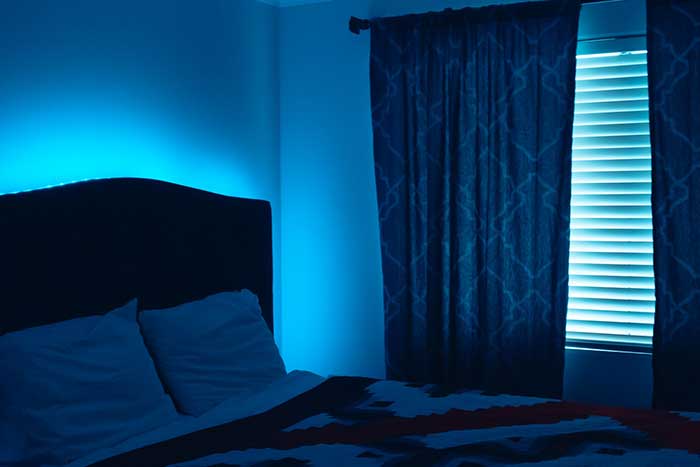
@_nicksgraphics_
We spend a third of our life sleeping – an activity rest and rejuvenate. You may have heard that “the shorter you sleep, the shorter your life”. And though you might think it sounds extreme, evidence shows that the leading causes of death and disease in developed nations – such as heart disease, cancer, obesity – all have causal links to poor sleep.
Matt Walker, internationally acclaimed sleep scientist and educator, speaks about sleep being a life-support system. While we sleep, our brain is processing recently learned tasks and stores longer-term memories. But, now it has been found that restorative sleep detoxifies our brain during the night, and fascinatingly, REM sleep provides emotional first-aid and “overnight therapy”. Sufficient sleep aids mood regulation, mental stability, and even our processing of painful or aggressive interactions.
A forewarning if you suffer from a sleep disorder – like insomnia or sleep apnea – anxiety, depression, substance abuse disorder, or other health problems that fundamentally impact your inability to sleep well – it is advisable that you contact medical and psychological professionals trained to guide you through your challenge. As sleep is inextricably linked with mental health, specialized patient advice will assist you to get to the bottom of your health concerns.
As we are only now discovering the true impact of good and bad sleep, the body, and our mental state, many people underestimate the importance of restorative sleep for increased productivity, longevity, overall health, and even academic performance. Learning some habits to help improve your sleep can be a game-changer!
Sleep in a dark space
Evolutionarily, when the sun sets, melatonin – and subsequent sleepiness – is triggered in the brain. In a darker room, our body is better able to regulate the timing of our sleep. But, we live in a chronically darkness-deprived society – with light pollution and excessive screentime on our bright tablets and phones. It is crucial to learn to control the light use inside our homes.
Becoming mindful of our exposure to light after the sun has set is important to getting good quality sleep, especially so during the last couple of hours before bed. We want to reduce overall light exposure, so light some candles, dim those lights, and try not to use your electronic devices!
Get regular with your hours
You may have heard that going to sleep and waking up at a similar time helps regulate your sleep schedule, and this is true! Consistent times help your brain settle into a routine and get you more tired closer to your anticipated sleep time. If you struggle to go to bed on time, it can help to set a reminder or alarm, notifying you when your time to sleep is near or has arrived.
Cool the room
It has been studied that the ideal room temperature for sleeping, which should be slightly cooler than your daily average, lies at around 65 degrees Fahrenheit or just over 18 degrees Celsius. Though it may seem unnecessarily cool to you, this dropped temperature is biologically hardwired.
A cooler room will not only help you fall asleep faster but also help you sleep through the night. There are cooling mattress pads and toppers on the market with great success!
Make your room comfortable
We need to take personal responsibility for our quality of sleep. Therefore, in addition to the darkness which assists in initiating and sustaining our sleep, we must make our bedroom a comfortable sanctuary for rest.
Question the comfort of the pajamas you wear to bed, distracting pets lying on your bed or waking you in the night, the warmth of your duvet or blanket, and even whether your blanket is appropriate for you.
There are now some excellent blankets that you might want to consider introducing to your sleep hygiene, notably if you have anxiety, restlessness, PTSD, and even ADHD. Tackling sleeplessness related to mental health, weighted blankets were invented from a societal need to calm the nervous system and soothe individuals with sensory overload. Using a Weighted Blanket Guides review can help you select one that fits your requirements. And, as people around the world are taking control of their sleep needs, awareness around various sleeping aids will just be improving!
Monitor alcohol and caffeine intake
Your recommended 7-9 hours is the best place to start; but if you are falling asleep with alcohol or caffeine in your system, your brain is likely not able to access REM sleep and get sufficient quality rest. With regards to alcohol, studies show that even 1 glass of wine or a ‘nightcap’ is likely to fragment your sleep and result in poor sleep quality. It is not suggested to drink caffeine after 2 pm, even if you think it does not impact your nervous system and sleep regulation that night.
Importantly, you may also feel unrefreshed the following day if you have taken a sleeping tablet. As this drug impairs the parts of your brain required to get restorative sleep activity, it is vital that you first try behavioral methods to sleep better.
Sleeping is a powerful tool for rest, regulating your emotions, and fighting disease. If your sleep hygiene is concerning for you, it is a warning to take seriously anything which may be impacting your ability to get good quality and uninterrupted sleep. Be warned, it will change your life!


